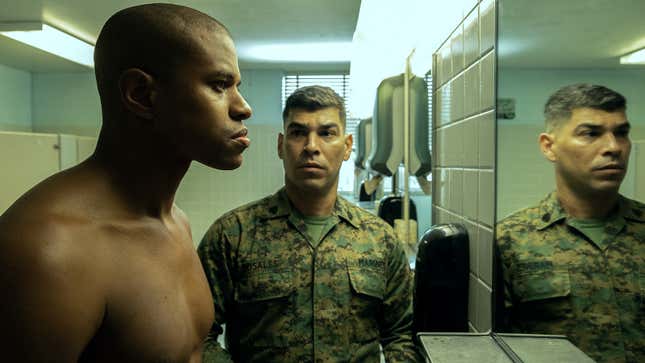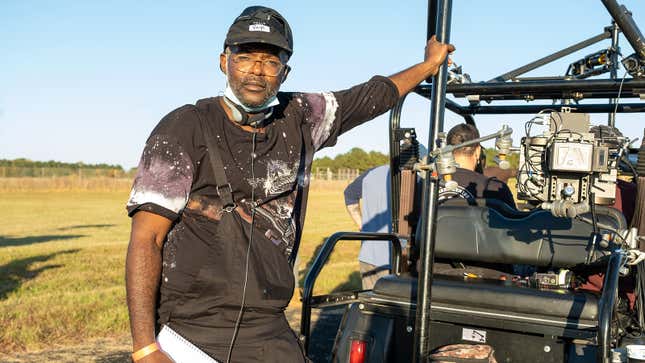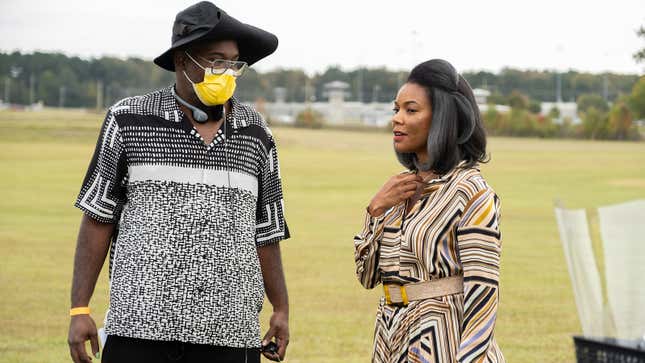‘The Inspection’ Explores ‘Don’t Ask Don’t Tell’ Through the Eyes of a Young Black Marine
Director Elegance Bratton tells Jezebel how he, like his film's protagonist, survived homophobia, homelessness, and the military.
EntertainmentMovies

“Every movie is a miracle,” writer/director Elegance Bratton told Jezebel while discussing his debut feature, The Inspection, last month. Some miracles, though, are more miraculous than others. The six-year process Bratton went through, from putting words on the page to having his semi-autobiographical film produced, is impressive by any measure, given its optics: Its protagonist, like Bratton, is a Black gay man who finds refuge in the military, and the movie takes no apparent stance on the greater implications of the manufacturing of human war machines. But it is even more so when Bratton’s complete biography is taken into account. The Jersey-born Bratton’s mother kicked him out at 16 as a result of his sexuality, and he spent more than 10 years on the street. When we meet French, his onscreen avatar played by Jeremy Pope, he’s living in a shelter.
“I had grown up with the notion that I was worthless because of my sexuality—that my life had no meaning and I had no future,” Bratton said. “And then I joined the Marine Corps at that moment of desperation, and my drill instructor informed me that actually I was important, that I did matter, because of my ability to protect and serve the person to my left and right—that my life depends on them and their life depends on me. That was a really transformational moment in my life.” After leaving the Marines, Bratton attended Columbia University and got his MFA at New York University. He went on to direct the 2019 documentary Pier Kids about queer youth in New York, as well as the Vice ballroom series My House.

If this redemption arc were neat, though, Bratton wouldn’t have had the reference material to make the nuanced film that he did. For one thing, he enlisted when Don’t Ask Don’t Tell was still very much in effect, which meant that his refuge wasn’t an entirely safe space. Like French, his sexuality was sussed out fairly early at boot camp.
“Well, my name is Elegance,” he said to display his lifelong inability to hide in plain sight. That name was, ironically enough, given to him by his mother, who rejected him for being gay. “This is why [the movie] has to be nuanced, because the tragic and the comedic are literally hand-in-hand,” he added.
-

-

-

-

-

-

-

-

-

-

-

-

-

-

-

-

-

-

-

-

-

-

-

-

-

-

-

-

-

-

-

-

-

-

-

-

-

-

-

-









































